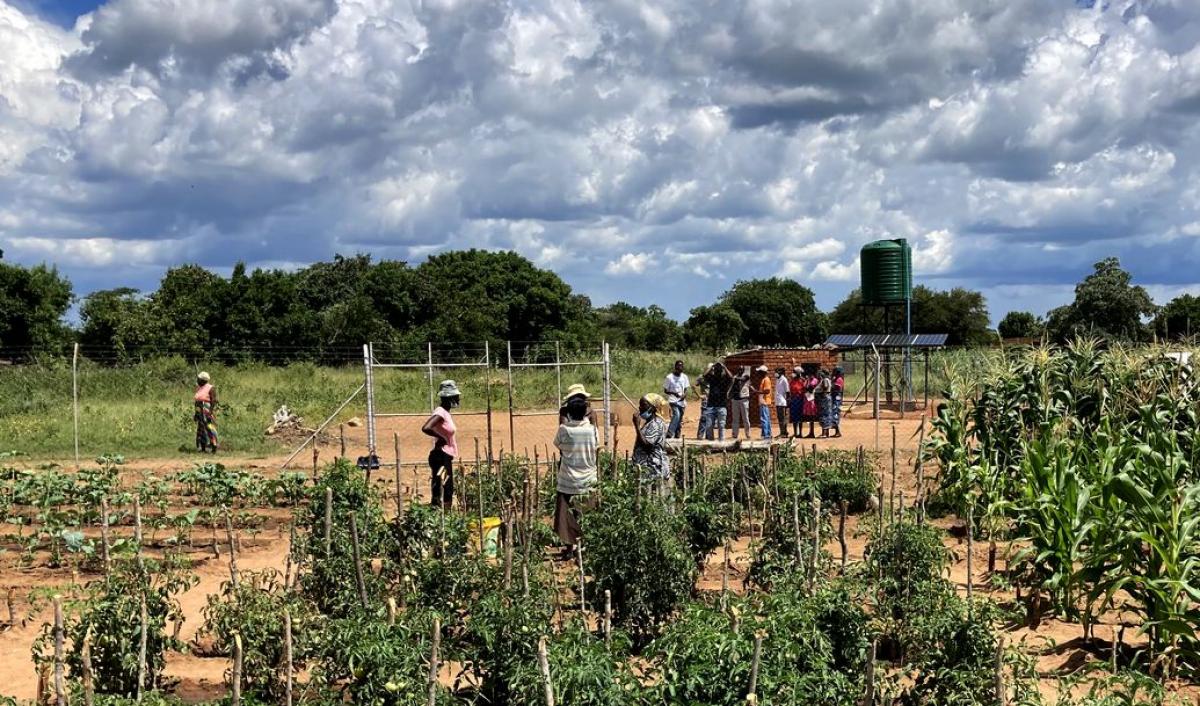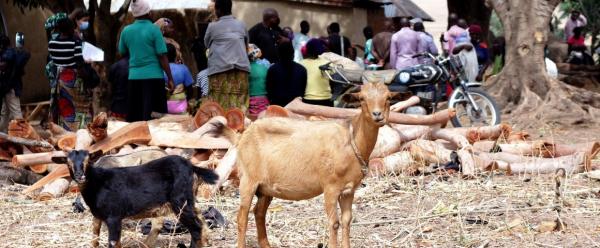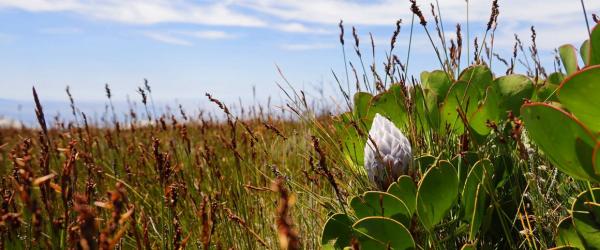Results & impact 28 October 2025
- Home
- CIRAD news
- News
- Reconciling local development and conservation
Reconciling local development and conservation in southern Africa
-40.JPG)
Inhabitant of the Kavango-Zambezi transfrontier conservation area © B. Stirton-Getty Images for FAO, CIFOR, CIRAD, WCS
How can we manage southern Africa's protected areas sustainably? This question is too often viewed solely in terms of biodiversity conservation. However, it would be a good idea to look at the livelihoods and wellbeing of people living in and around those protected areas, to guarantee a decent standard of living for them and reduce conflict with wildlife. This is what the ProSuLi project (Promoting Sustainable Livelihoods in Transfrontier Conservation Areas) set out to do in 2018, working in four communities in Botswana, Mozambique and Zimbabwe.
"It was necessary to restore the capacity of communities in transfrontier conservation areas (TFCAs) to drive their own development pathways rather than imposing external solutions on them", says Alexandre Caron, CIRAD researcher and ProSuLi project coordinator. This project took that into account, and the local communities themselves defined and prioritized possible futures - and the activities required to achieve them - by means of participatory approaches.
Irrigated gardens and tick-borne disease prevention
CIRAD has substantial experience of this type of participatory approach, which has already borne fruit. Solar-powered boreholes and irrigated gardens have been set up in Mozambique and Zimbabwe. They give women, who are generally in charge of fetching water and cultivating gardens, more time for other activities and access to income, which in some cases has meant less conflict within families.
Elsewhere, veterinary training courses have been held, for tick-borne disease prevention. Collective cattle herding in a community in Botswana has reduced attacks by lions, while at two project sites in Zimbabwe, villagers proved keen to hold workshops to nurture respect between people and generations and for nature.
These activities, which were chosen by local stakeholders and monitored by the project partners, have benefitted several thousand people, either directly or indirectly. "The Covid-19 pandemic has shown that conservation tourism is merely a way of diversifying livelihood options, not a silver bullet", Alexandre Caron observes. "It is small-scale farming, respecting local resources, that has maintained local livelihoods throughout the crisis."
Collective governance for long-term impact
The question of sustainable livelihoods was thus central to the project's activities, to ensure long-term impacts. "We have seen a number of new, inclusive and supportive initiatives", the researcher explains. "For instance, some of the money collected to maintain boreholes has been reinvested in a herd of goats, becoming the borehole committee's 'current account'. This might look like a drop in the ocean, but we hope the empowerment and appropriation process in which local communities are now involved will allow them to be proactive, and work collectively to design responses to future challenges."
Promoting innovation through collective action - rather than technology - means that each and every stakeholder, from the local to the global level, has to change. This is why the project team is involved in working groups and talks aimed at influencing the entire range of players, from donors to practitioners.
A matter of social and environmental justice
CIRAD and its partners, with others, are pushing for a paradigm shift and trying to ensure a better balance between biodiversity and development, which are interdependent. "'Involving local stakeholders must not be just for show. It has to be central to collective decision-making and TFCA management practices", Alexandre Caron insists. As far as he is concerned, this shift is necessary in order to "decolonize" the current conservation paradigm once and for all, since by imposing community-based anti-poaching programmes for example, it merely promotes conservation-oriented activities while cutting local communities off from their traditional culture and farming practices. This situation locks conservation practices into dominant top-down and often unjust systems with little chance of long-term sustainability.
Above all, this is a matter of social and environmental justice. "People living on the fringes of protected areas must be allowed to defend their rights just like anyone else. In an already difficult situation of poverty, you and I would not take constant attacks by lions or elephants lying down. How many people would be prepared to sacrifice this much for conservation and hand over control of their future?", he concludes by asking.


























-77.JPG)


